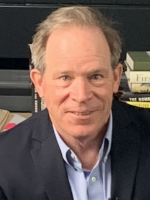Andre Haddad, CEO of the online car-sharing platform Turo, could have headed for shelter when the media storm hit. Instead, he appeared to embrace the adage, “Never let a good crisis go to waste.”
On New Year’s Day, not one but two vehicles rented through the Turo app were involved in horrific and high-profile tragedies, each generating worldwide coverage.
At 3:15 a.m. in New Orleans’s French Quarter, U.S. Army veteran Shamsud-Din Jabbar drove his rented Ford F-150 into a crowd of revelers, killing 14 people and injuring dozens more before police shot and killed him. Several hours later, Matthew Alan Livelsberger, an active-duty U.S. Army Green Beret, allegedly detonated his rented Tesla Cybertruck outside the main entrance of the Trump International Hotel Las Vegas before killing himself.
The media quickly zeroed in on Turo, a privately held company that has been described as an Airbnb for autos. A customer finds a privately owned vehicle they want to rent on the site, then books it from the “host” – an individual who can make money renting out their car to total strangers.
The Wall Street Journal on Jan. 2 questioned Turo’s safety record; Fox Business followed suit a day later. Both outlets noted that cars rented from Turo and other online sites are sometimes damaged, stolen, and abandoned, and some cars reportedly have been used for human smuggling.
While Turo initially addressed reporters’ questions with a statement, Haddad agreed to go live on CNBC on Jan. 3.
It was a smart move by the company. Haddad was humble, disarming, and appeared forthright. Even when addressing the toughest questions, he was not defensive but calm and earnest, and he used facts to tell his story.
CNBC news anchor Sara Eisen kicked off the interview by asking Haddad where the investigation stood.
“We've been working around the clock to investigate and partner with law enforcement,” Haddad said. “My first thoughts are for the families and victims. We are really heartbroken for them. This feels so unfair.”
Eisen then asked Haddad how Turo could rent vehicles to individuals who caused such destruction and death.
While the company uses a proprietary, data-based algorithm to screen each potential renter, Haddad stressed that these two individuals had no criminal record or any other disqualifying factors.
“They had valid U.S. driver’s licenses, in fact, they were decorated servicemen,” Haddad said. “They ... could have boarded any flight. They could have rented any other car in any traditional car rental chain. They could have checked into any hotel, and there were no red flags, no one would have flagged them as a security risk. So, it's a very challenging situation to deal with.”
Eisen pressed Haddad on safety concerns.
“You know there have been articles, including on NBC, that Turo is no stranger to safety concerns, and for years, these peer-to-peer platforms have been faced with criticism about stolen cars used for nefarious purposes,” she said. “What is it about the business?”
Haddad acknowledged that there have been many “terrorist attacks” using rented vehicles “over the last 20 years in the U.S. and abroad,” but said that Turo felt “very good” about its own trust and safety track record. He supported his position with a series of facts:
“We've been around for 13 years, so we're not new. We've facilitated over 90 million book days, 27 million trips to date, and the rate of serious incidents on our platform over that whole period, across all of these trips, is less than 0.1%. So, our safety track record is very strong,” he said.
He added, “I believe that ... Turo happened to be chosen this time instead of others because we have become a really large player in this market.”
Many companies would have refused to put their leader in front of the media. Too many risks, they would conclude. What if the CEO says something that digs the company into a deeper hole or opens it up to a lawsuit? It is easy to say, “Let’s just give them a statement and be done with it.”
But Haddad’s appearance provided the company with an opportunity to demonstrate a measure of humanity by acknowledging the victims and their families. Haddad also used the platform to underscore Turo’s work with legal authorities and to stress the company’s successful track record, highlight its state-of-the-art technology to screen for bad actors, and reiterate Turo’s support for hosts whose vehicles have been damaged.
Haddad and his team smartly recognized they had a compelling story to tell, and he was brave enough to tell it. Granted, there are times when it is best to say nothing, but the Turo case provides a roadmap for all CEOs and communications pros for how to handle a crisis.
Sometimes, the best strategy is putting the CEO out front and letting them deliver the message.




 />i
/>i
